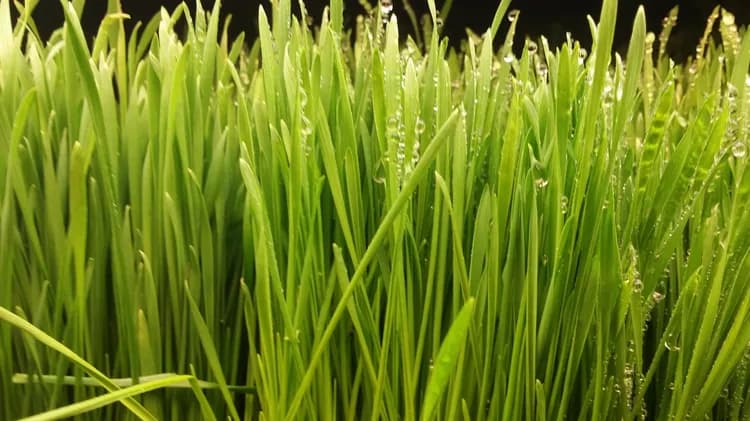
Wheatgrass: Do The Actual Health Benefits Match Naturopaths' Claims?
Wheatgrass is a food product from the wheat plant Triticum aestivum, also called couch grass or agopyron. Wheatgrass is commonly found in European and American temperate regions. It is consumed as a natural dietary supplement and is sold in the form of wheatgrass juice (fresh or frozen), tablets, powder concentrates, fresh produce, and liquid herbal supplements. The advocates of naturopathy strongly recommend consumption of wheatgrass to treat various disease conditions such as the common flu, anemia, thalassemia, type 2 diabetes, hypertension, cancer, and bowel disorders.
Ann Wigmore (1909-1993), a well-known naturopath and founder of Hippocrates Health Institute had claimed wheatgrass could cure fatal diseases like breast cancer, but there is no clinical evidence for her hypothesis.
Wheatgrass is gaining popularity as an herbal dietary supplement despite a lack of scientific evidence. According to the United State Department of Agriculture (USDA), the nutritional composition of wheatgrass closely resembles that of vegetables like spinach and broccoli. Wheatgrass contains vitamins (e.g., vitamin-A, vitamin-C), minerals, (e.g., potassium, iron), dietary fiber, and beta-carotene.
Naturopaths recommend ‘wheatgrass therapy’ to cure various ailments because they believe it has detoxifying effects and fights against various infections They claim that the chlorophyll in wheatgrass can transport oxygen through the body since it is chemically similar to hemoglobin. Thus, it can be used to treat iron deficiency anemia. Science has disproved this claim, as chlorophyll is not absorbed by the body.
A small randomized clinical trial conducted on 21 subjects with ulcerative colitis had recorded a significant improvement in their symptoms when they drank wheat grass juice daily for one month. The subjects who were drinking wheatgrass juice experienced less pain and less rectal bleeding than those in the placebo group. The size of the trial was small, and the subjects were also taking the prescribed medicine and on a diet therapy. Therefore, the improvements cannot be attributed to wheatgrass therapy.
In a Pilot study conducted on 32 subjects with thalassemia major, it was found that the subjects who drank wheatgrass juice for a period of one month required 25% less blood transfusion than those who drank a placebo drink; but the efficacy of wheatgrass in thalassemia major is yet to be proven in clinical trials.
Naturopaths also believe that wheatgrass helps to manage the side effects of chemotherapy in people suffering from cancer. According to the American Cancer Organization, wheatgrass therapy does not improve the health of cancer patients, but it has no significant adverse effect either.
In conclusion, from the data available at the current time, it appears that there is no harm in taking wheatgrass as a dietary supplement. However, if someone is on a medication or a diet plan, care should be taken that prescribed medicine and diet regimens are strictly followed.
References:
Living Foods Lifestyle: Why Living Foods? Retrieved from http://www.annwigmore.org/living_foods.html#wheatgrass
Benefits of Wheatgrass. Retrieved from http://hippocratesinst.org/living-food/benefits-of-wheatgrass
(2002). Wheatgrass juice in the treatment of active distal ulcerative colitis: a randomized double-blind placebo-controlled trial. Scand J Gastroenterol, 37(4):444-9.
(2004). Wheatgrass juice reduces transfusion requirement in patient with thalassemia major a pilot study. Indian Pediatric, 41(7):716-20
Ogle, D.G. (2001 Jan 17). Crested Wheatgrass. Retrieved from http://plants.usda.gov/plantguide/pdf/pg_agcr.pdf
Related Articles
Test Your Knowledge
Asked by users
Related Centers
Related Specialties
Related Physicians
Related Procedures
Related Resources
Join DoveHubs
and connect with fellow professionals

0 Comments
Please log in to post a comment.